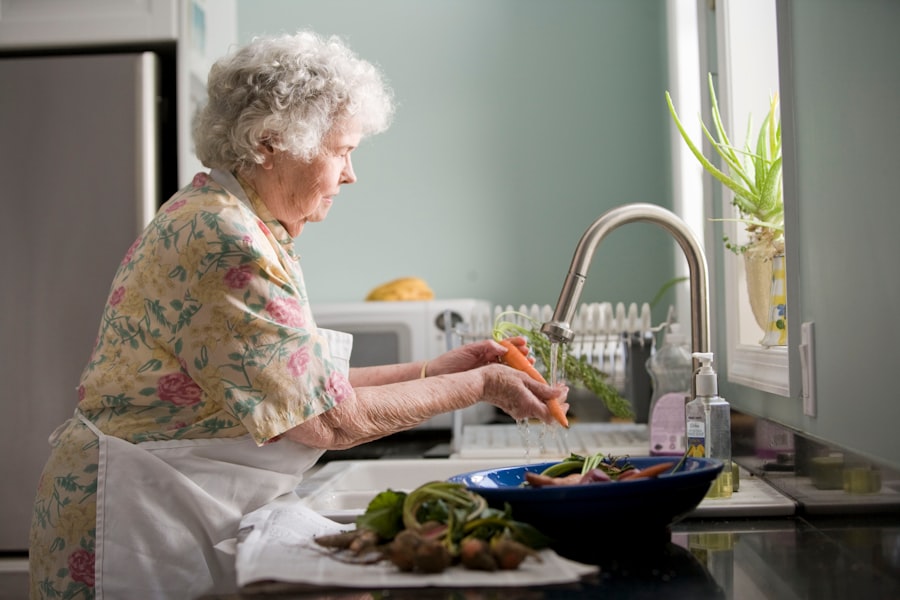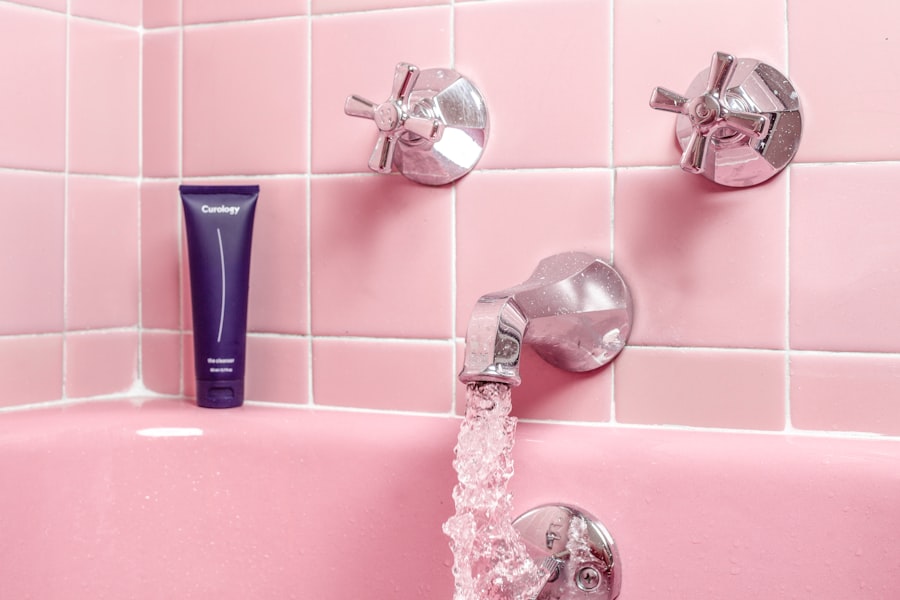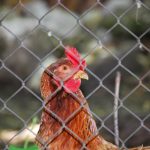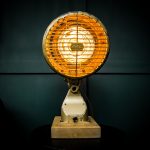Salmonella is a bacterial pathogen that can cause foodborne illness in humans. It is frequently associated with poultry, particularly chickens, which can be asymptomatic carriers of the bacteria. Infected chickens can harbor Salmonella in their feces, feathers, and on their skin, potentially contaminating eggs and other poultry products.
Human consumption of these contaminated items can lead to salmonellosis, characterized by symptoms such as diarrhea, fever, and abdominal cramps. It is important to note that not all chickens are Salmonella carriers, and not all eggs are contaminated. However, preventive measures are crucial to mitigate the spread of Salmonella and ensure the safety of both poultry and consumers.
These measures include implementing proper hygiene and sanitation protocols, maintaining clean living conditions for chickens, practicing safe egg handling and storage, providing clean water and feed, and conducting regular health checks and vaccinations for the flock. Salmonella poses a significant health risk, making it essential for chicken owners to be aware of the potential dangers and take proactive steps to prevent bacterial spread. By understanding the relationship between Salmonella and chickens, owners can implement necessary measures to protect both their flock and themselves from potential illness.
Table of Contents
Key Takeaways
- Salmonella is a bacteria commonly found in chickens and their eggs, which can cause food poisoning in humans.
- Proper hygiene and sanitation practices, such as handwashing and cleaning of chicken coops, are essential for preventing Salmonella contamination.
- Maintaining a clean living environment for chickens, including regular removal of droppings and proper ventilation, can help reduce the risk of Salmonella.
- Safe handling and storage of eggs, such as refrigeration and avoiding cross-contamination, is crucial for preventing Salmonella infection.
- Providing clean water and feed for chickens, as well as regular health checks and vaccinations, can help prevent the spread of Salmonella.
Proper Hygiene and Sanitation Practices
Personal Hygiene Practices
Regular handwashing before and after handling chickens or their eggs is crucial, as well as cleaning and disinfecting any equipment or surfaces that come into contact with the birds. It’s also important to use separate clothing and footwear when working with chickens to prevent cross-contamination, and to avoid bringing any potential sources of Salmonella into the chicken coop.
Maintaining a Clean Environment
In addition to personal hygiene, maintaining a clean environment for the chickens is vital for preventing the spread of Salmonella. This includes regularly cleaning and disinfecting the chicken coop, nesting boxes, and feeders, as well as removing any feces or soiled bedding. By keeping the living environment clean and free from potential sources of contamination, chicken owners can reduce the risk of Salmonella infection in their flock.
Reducing the Risk of Salmonella Contamination
By implementing proper hygiene and sanitation practices, chicken owners can significantly reduce the risk of Salmonella contamination in their flock. These practices not only protect the health of the chickens but also help to ensure the safety of the eggs and poultry products for consumers.
Maintaining a Clean Living Environment for Chickens

Maintaining a clean living environment for chickens is essential for their health and well-being, as well as for preventing the spread of Salmonella. This includes regularly cleaning and disinfecting the chicken coop, nesting boxes, and feeders to remove any potential sources of contamination. It’s also important to provide adequate ventilation in the coop to reduce moisture levels and prevent the growth of bacteria.
In addition to cleaning the physical environment, it’s crucial to practice good waste management to prevent the buildup of feces and soiled bedding. Regularly removing feces from the coop and replacing soiled bedding can help to reduce the risk of Salmonella contamination in the flock. Providing clean and dry nesting material can also help to prevent the spread of bacteria and ensure the safety of the eggs.
By maintaining a clean living environment for their chickens, owners can help to reduce the risk of Salmonella contamination in their flock. This not only protects the health of the birds but also helps to ensure the safety of the eggs and poultry products for consumers.
Safe Handling and Storage of Eggs
Safe handling and storage of eggs are essential for preventing Salmonella contamination in poultry products. This includes collecting eggs frequently to prevent them from becoming soiled or cracked, as well as ensuring that they are promptly refrigerated after collection. Proper storage of eggs at temperatures below 45°F (7°C) can help to slow the growth of any potential bacteria, including Salmonella.
When handling eggs, it’s important to wash them with warm water before use to remove any potential contaminants from the shell. It’s also crucial to avoid cross-contamination by using separate utensils and surfaces for handling raw eggs and cooked foods. By practicing safe handling techniques, chicken owners can help to reduce the risk of Salmonella contamination in their eggs and poultry products.
By implementing proper hygiene and sanitation practices, maintaining a clean living environment for the chickens, practicing safe handling and storage of eggs, providing clean water and feed, and conducting regular health checks and vaccinations for the chickens, owners can significantly reduce the risk of Salmonella contamination in their flock. These proactive measures not only protect the health of the birds but also help to ensure the safety of the eggs and poultry products for consumers.
Providing Clean Water and Feed for Chickens
Providing clean water and feed is essential for maintaining the health of chickens and preventing the spread of Salmonella. It’s important to regularly clean and disinfect waterers and feeders to remove any potential sources of contamination. This includes removing any debris or soiled feed from the feeders, as well as regularly changing the water to prevent bacterial growth.
In addition to cleanliness, it’s crucial to provide a balanced diet for the chickens to support their immune system and overall health. This includes offering a mix of grains, protein, vitamins, and minerals to meet their nutritional needs. By providing clean water and a balanced diet, chicken owners can help to support the health of their flock and reduce the risk of Salmonella infection.
By ensuring that chickens have access to clean water and feed, owners can help to maintain their health and well-being while reducing the risk of Salmonella contamination in their flock. These proactive measures not only protect the birds but also help to ensure the safety of the eggs and poultry products for consumers.
Regular Health Checks and Vaccinations for Chickens

Vaccinations: An Additional Layer of Protection
In addition to regular health checks, vaccinations can provide an extra layer of protection against common diseases, including Salmonella. By working with a veterinarian to develop a vaccination schedule, owners can reduce the risk of illness in their flock and prevent the spread of bacteria such as Salmonella.
Protecting Consumers and the Flock
By conducting regular health checks and vaccinations, owners can not only protect their chickens but also ensure the safety of the eggs and poultry products for consumers. These proactive measures are essential for maintaining a healthy and safe flock.
A Proactive Approach to Health
By taking a proactive approach to health, owners can help to prevent the spread of disease within their flock and reduce the risk of Salmonella contamination. Regular health checks and vaccinations are essential for maintaining the health and well-being of chickens, and for ensuring the safety of consumers.
Educating Yourself and Others about Salmonella Prevention
Educating yourself and others about Salmonella prevention is essential for promoting awareness and reducing the risk of illness in both chickens and humans. This includes staying informed about best practices for preventing Salmonella contamination in poultry products, as well as sharing this information with others in your community. By educating yourself about Salmonella prevention, you can take proactive measures to protect your flock from potential illness while also ensuring the safety of your eggs and poultry products for consumers.
Additionally, by sharing this knowledge with others, you can help to promote responsible chicken ownership and reduce the risk of Salmonella contamination in your community. By understanding the relationship between Salmonella and chickens, implementing proper hygiene and sanitation practices, maintaining a clean living environment for your flock, practicing safe handling and storage of eggs, providing clean water and feed, conducting regular health checks and vaccinations, and educating yourself and others about Salmonella prevention, you can take proactive measures to protect your flock from potential illness while also ensuring the safety of your eggs and poultry products for consumers.
If you’re looking for tips on how to keep chickens from getting salmonella, you might also be interested in learning about the benefits of having a garden chicken coop. Check out this article to discover how a garden coop can provide a safe and healthy environment for your chickens while also enhancing your garden space.
FAQs
What is salmonella and how do chickens get it?
Salmonella is a type of bacteria that can cause illness in humans and animals, including chickens. Chickens can get salmonella from contaminated food, water, or environment, and can then pass it on to humans through their eggs or meat.
How can I prevent my chickens from getting salmonella?
To prevent salmonella in chickens, it is important to keep their living environment clean and dry, provide them with clean water and feed, and practice good hygiene when handling them. Regularly cleaning and disinfecting their coop, nesting boxes, and feeders can also help prevent salmonella.
Can I vaccinate my chickens against salmonella?
Yes, there are vaccines available for chickens to help prevent salmonella. It is recommended to consult with a veterinarian to determine the best vaccination schedule for your flock.
Is it safe to eat eggs from chickens that may have been exposed to salmonella?
It is not recommended to consume eggs from chickens that may have been exposed to salmonella. Proper cooking of eggs can kill the bacteria, but it is best to prevent salmonella in the first place by practicing good hygiene and keeping the chickens’ environment clean.
What are the symptoms of salmonella in chickens?
Symptoms of salmonella in chickens can include diarrhea, lethargy, decreased egg production, and in severe cases, death. If you suspect your chickens may have salmonella, it is important to seek veterinary care.
Meet Walter, the feathered-friend fanatic of Florida! Nestled in the sunshine state, Walter struts through life with his feathered companions, clucking his way to happiness. With a coop that’s fancier than a five-star hotel, he’s the Don Juan of the chicken world. When he’s not teaching his hens to do the cha-cha, you’ll find him in a heated debate with his prized rooster, Sir Clucks-a-Lot. Walter’s poultry passion is no yolk; he’s the sunny-side-up guy you never knew you needed in your flock of friends!







